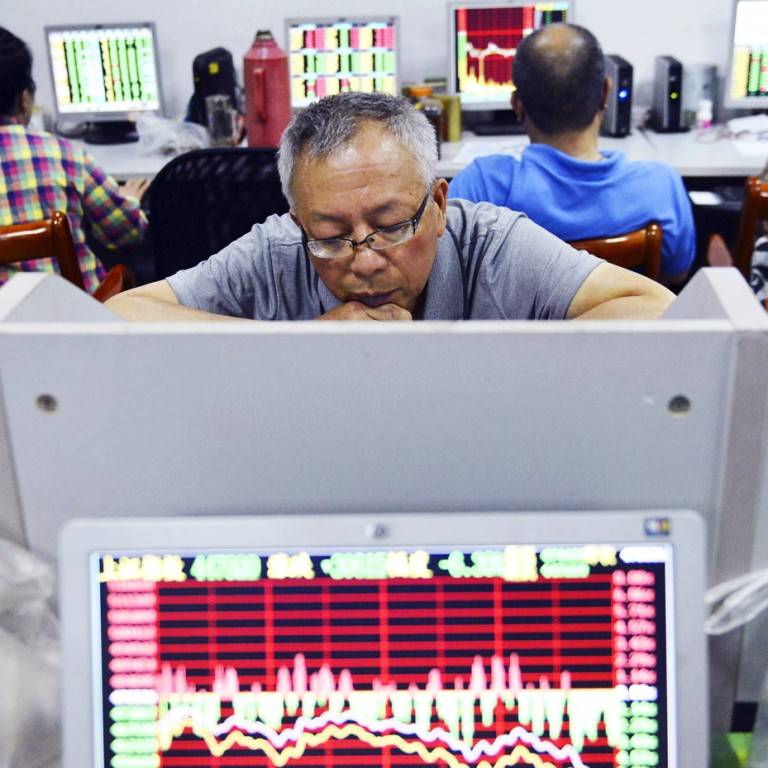
Update | China stocks continue fall despite Beijing easing efforts, down more than 20pc from peak
Shanghai endures wild ride, moving into a bear market, while Hong Kong shares are sold down in line with global falls over Greece concerns
Mainland stocks tumbled again yesterday despite an interest rate cut at the weekend, while the Hong Kong market joined a global slide over growing concerns of Greece leaving the euro zone.
The Hang Seng Index shed 2.61 per cent, or 696.89 points, to close at 25,966.98, its lowest in nearly three months. The Shanghai Composite Index ended a volatile trading day closing down 3.3 per cent to 4,053.03.
Having lost more than 20 per cent from its June 12 peak, the Shanghai market is now technically in bear market territory. The key index fell as much as 7.6 per cent at one point before bouncing off its low on expectations of further support measures after the People's Bank of China cut interest rates to a record low.
Despite the new policy boost after Friday's rout, when Shanghai stocks fell more than 7 per cent, all mainland markets slumped yesterday. Since their early June peaks, the Shanghai Composite is down 21.5 per cent, the Shenzhen Composite 25.1 per cent and ChiNext 32.4 per cent.
"By now, very few investors harbour any doubt about the government's desire to see the market up. But recent inflows into the market had proven insufficient to offset outflows and push the market higher," said a note by Bank of America Merrill Lynch equity strategists.
The central bank's easing efforts to revive the market were offset by the massive closures of margin-trading positions built earlier by investors who had placed aggressively bullish bets.
"Margin financing was the primary market driver on the way up, and it will be a key driver on the way down as well," HSBC equity strategists said. "Investors will likely sell into the rebound in order to lower their leverage."
The strategists said they expect a combined 300 billion yuan (HK$379 billion) worth of such trading positions would have to be closed, forcing investors to sell and further dragging down mainland stocks.
The state-backed provider of margin-financing loan services, China Securities Finance Corp, yesterday tried to calm the market, saying margin trades accounted for less than 1 per cent of Shanghai's turnover. But after a brief turnaround following the statement, mainland stocks continued to spiral down.
Elsewhere, worries over Greece were felt. Japan's Nikkei index lost 2.9 per cent, while shares in Sydney shed 2.23 per cent. As the epicentre of the crisis, Europe saw a heavy sell-off at the start of trade. The German Dax Index shed 3.34 per cent and Britain's FTSE Index fell 1.75 per cent.
The euro zone's banking index fell 5.5 per cent, with Portuguese, Spanish and Italian lenders taking the biggest hit. Gold prices rose nearly 1 per cent to US$1,184.20 per ounce as investors looked for a safe haven.
Markets were taken aback at the weekend when Greece announced a referendum on bailout terms for the country.
China's capital controls mean its stock market may be largely detached from global markets. But the impact of a Greek exit from the euro zone with contagion effects would lower regional growth by 0.3 per cent next year, said IHS Global Insight.
Watch: China stocks slide despite easing boost

